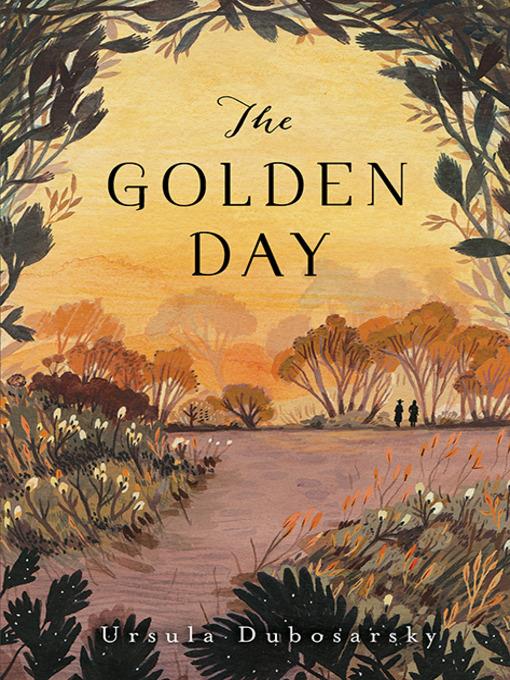
The Golden Day
فرمت کتاب
ebook
تاریخ انتشار
2013
Lexile Score
720
Reading Level
3
ATOS
4.8
Interest Level
6-12(MG+)
نویسنده
Ursula Dubosarskyناشر
Candlewick Pressشابک
9780763667238
کتاب های مرتبط
- اطلاعات
- نقد و بررسی
- دیدگاه کاربران
نقد و بررسی

Starred review from June 10, 2013
Blending mystery with coming-of-age themes, Dubosarsky’s novel, set in 1967 at an Australian all-girls school, explores a class’s response to the unexplained disappearance of their teacher. Miss Renshaw, lover of poetry and hater of capital punishment, takes her group of 11 “little girls” on a field trip to visit a public memorial garden and “think about death.” There they meet an odd groundskeeper named Morgan, who leads them into a cave to see ancient Aboriginal paintings. The girls exit safely, but Miss Renshaw and Morgan do not reappear, and the girls return to school as the tide sweeps in. The incident, later reported to authorities, bonds the girls as each faces bewilderment, guilt, and grief when it becomes clear their teacher will not likely return. Dubosarsky (The Word Snoop) subtly shows the impact of the tragedy through fragments of conversations, observations, and memories, while expertly sketching a cast of vulnerable, inquisitive children and ridiculous authority figures. Laced with humor amid a steady feeling of dread, the atmospheric narrative chillingly evokes lurking forces capable of tarnishing even the most golden and innocent of days. Ages 12–up.

June 15, 2013
Eleven schoolgirls are haunted by their teacher's inexplicable disappearance during a field trip in this atmospheric mystery set in Vietnam War-era Sydney. Miss Renshaw's young students know their teacher is a bit eccentric. They also understand that their class's frequent poetry-writing excursions to a local garden are actually excuses for their teacher to see Morgan, a charismatic conscientious objector who is one of the gardeners. "It will be our little secret," Miss Renshaw says of their meetings with Morgan, but that secret becomes a burden when Miss Renshaw and Morgan vanish during an outing. Through precise, vivid descriptions, the third-person narrative evokes the contrast between the girls' cloistered school lives and the hard realities of the outside world. The students are "eleven schoolgirls in their round hats, with their socks falling down, hand in hand, like a chain of paper dolls"; meanwhile, soldiers are dying in Vietnam, and prisoners are being hanged at home. The mystery is less a whodunit and more a psychological study of the girls--especially anxious Cubby, whose friendship with sensible Icara is sorely tested by the affair--and invites comparisons to cult film classic Picnic at Hanging Rock (1975). Read this slender mystery for the meticulous prose and characterization, not for the plot. (Historical mystery. 12-18)
COPYRIGHT(2013) Kirkus Reviews, ALL RIGHTS RESERVED.

Starred review from July 1, 2013
Grades 7-12 *Starred Review* The classic Australian film Picnic at Hanging Rock finds its literary equivalent in fellow Aussie Dubosarsky's dark, languid look into the inscrutable wells of secrecy to be found in little girls. In the shadow of the Vietnam War, 11 bored Australian schoolgirls are taken on a short field trip to the local gardens by their idealistic teacher. Together with the teacher's apparent paramour, the girls are led to a seaside cave wherein the two adults vanish forever. When the girls are repeatedly questioned about the disappearance, their own self-interest compels them to stay silent and senselessly guard the truth, until the keeping of the secret, not the secret itself, becomes the most important thing. In a stunning feat of perspective, Dubosarsky inhabits all 11 girls at once, snaking through a thousand small joys and triumphs and fears and petty grudges as they absorb life's bleakest truths as well as their own complicity in them: Their eyes were clear but their hearts were dishonest. Reminiscent of Janne Teller's Nothing (2010), this is a masterful look at children's numb surprise to the most unsavory of adult developments. Though it's not really a surprise, is it? They knew all along that the world was full of terrible things.(Reprinted with permission of Booklist, copyright 2013, American Library Association.)

























دیدگاه کاربران